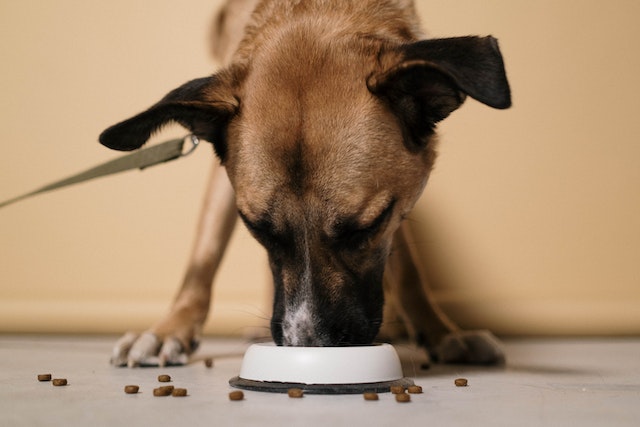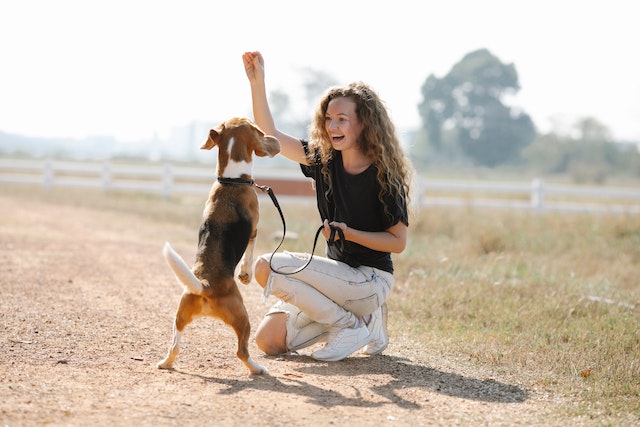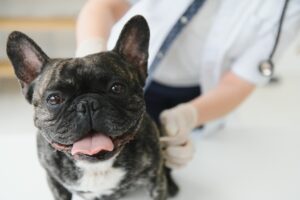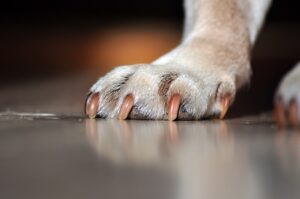Bringing a furry companion into your life can be exciting, but it’s important to consider the financial costs of owning a dog. From initial purchase or adoption to ongoing maintenance and care, there are various expenses to consider.
Owning a dog can cost anywhere from $1,500 upwards yearly. However, the actual cost depends on many factors. In this post, we’ll explore the comprehensive breakdown of the total cost of owning a dog. This will cover everything from acquiring your new friend to the essential aspects of their well-being.
Types of Dog Costs to Expect
From buying or adopting a dog to vet trips and supplies, below are the costs you can expect from owning a dog.
Adopting a Dog
The first step in owning a dog is adopting one, which can involve several expenses. The cost of getting a dog from a breeder can vary depending on factors such as:
- Breed
- Pedigree
- Demand
Alternatively, adopting from shelters or rescue organizations often comes with adoption fees. The fees typically cover the following:
- Vaccinations
- Spaying/neutering
- Microchipping
Also, if you’re getting a dog from a different location, you’ll need to consider transportation costs. Don’t forget to consider the initial supplies and equipment you’ll need, like crates, leashes, collars, and food/water bowls.
Veterinary Care
Proper healthcare is crucial for your dog’s well-being. Vet care includes the initial examination to ensure your new companion is healthy and up to date on vaccinations.
Spaying or neutering your dog is essential to controlling the pet population and reducing certain health risks. Ongoing preventive care is also necessary to keep your dog healthy and may include:
- Annual check-ups
- Vaccinations
- Flea/tick prevention
Unexpected accidents or illnesses can also occur, leading to emergency vet care and unforeseen medical expenses.
Food and Nutrition
Giving your dog balanced and nutritious meals is vital for their overall health. The cost of dog food can vary depending on factors such as:
- Brand
- Quality
- Size of your dog

Treats and supplements, while optional, can be additional expenses. Treats are great for training rewards. And if your dog has specific dietary needs due to allergies or your vet prescribes it, they’ll need supplements.
Grooming and Hygiene
Proper grooming and hygiene are essential for your dog’s well-being and cleanliness. Regular grooming expenses can include the following:
- Bathing
- Brushing
- Nail trimming
You can choose to do it yourself or opt for professional grooming services. Some dogs, such as poodles or other hypoallergenic breeds, require haircuts and regular brushings, which can cost more than a simple bath service if you choose to go to a professional groomer.
Dental care is also crucial. So, regular teeth cleaning and dental treatments may be necessary to ensure your dog’s oral health.
Training and Socialization
Training and socialization are essential for your dog’s behavioral and social development. Puppy training classes provide basic obedience and socialization skills, while advanced obedience training can improve behavior and commands.
Your dog may need behavior consultations or specialized training if they have specific behavioral issues that require extra attention and training.
Licensing and Identification
Depending on your location, obtaining a dog license may be mandatory. And it’ll come with its costs too. Microchipping or identification tags help ensure the authorities can easily identify your dog if they ever get lost.
Supplies and Accessories
You’ll need various supplies and accessories for your dog’s comfort and well-being. These can include:
- Bedding and crates for a comfortable sleeping area
- Toys and enrichment items for mental stimulation and entertainment
- Collars
- Leashes
- Harnesses for walks and outings
- Travel carriers and equipment for trips
- Cleaning supplies to maintain cleanliness in your home
Regular Maintenance Expenses
Routine maintenance expenses are part of responsible dog ownership. It includes routine vaccinations and boosters to protect your dog from common diseases.
Prescription medications such as heartworm prevention and flea/tick control are ongoing costs. Regular blood tests and screenings may be necessary to monitor your dog’s health and detect underlying conditions.
Also, factor in regular grooming and hygiene maintenance costs like bathing, grooming products, and flea/tick treatments.
Boarding and Pet Sitting
When you go on vacation or travel, you may need to consider the cost of boarding facilities or pet sitters to ensure your dog gets the best care.
Doggy daycare or pet walking services may also be additional expenses if you need assistance during the day while you’re at work or occupied.
Training and Behavior Modification
Some dogs may require additional training sessions or behavior modification programs to address specific training or behavior needs.
These can lead to additional costs but are essential for shaping your dog’s behavior and ensuring you have a great relationship with them.

Miscellaneous Expenses
Other miscellaneous expenses can arise throughout your dog’s life. Consider optional dog insurance or healthcare plans that can provide financial coverage for unexpected medical expenses.
Additionally, worn-out or damaged supplies may need replacements, and unexpected circumstances or emergencies may require additional spending.
Total Cost Calculation and Considerations
Summing up all the above expenses is the best way to determine the total cost of owning a dog.
However, keep in mind that factors such as the size, age, breed, and health of your dog can influence the overall cost.
Knowing the financial commitments associated with dog ownership will help you plan and budget accordingly. This ensures that you can provide the best care and love for your furry friend throughout their life.
Our Estimated Calculations for a Dog Costs
Note that the figures below are estimates and can differ based on individual circumstances.
Adopting a Dog
- Purchase cost: $500 – $3,000+ (depending on breed and pedigree)
- Adoption fees: $50 – $500 (may include vaccinations, spaying/neutering, microchipping)
Veterinary Care
- Initial examination: $50 – $200
- Spaying/neutering: $200 – $500
- Annual check-ups and vaccinations: $100 – $300 per year
- Flea/tick prevention: $100 – $200 per year
- Emergency veterinary care: $500 – $5,000+ (depending on the severity of the situation)
Food and Nutrition
- Dog food: $20 – $60+ per month (depending on the brand and size of the dog)
- Treats and supplements: $10 – $50+ per month
Grooming and Hygiene
- DIY grooming supplies: $50 – $200 (one-time purchase)
- Professional grooming services: $30 – $100+ per session (frequency varies based on breed and grooming needs)
- Dental care: $100 – $300 per year (including cleanings and treatments)
Training and Socialization
- Puppy training classes: $100 – $300
- Advanced obedience training: $200 – $500+
- Behavior consultations or specialized training: $100 – $500+
Licensing and Identification
- Dog license: $10 – $50 per year
- Microchipping or identification tags: $20 – $50 (one-time purchase)
Supplies and Accessories
- Bedding and crates: $50 – $300+
- Toys and enrichment items: $20 – $100+ per year
- Collars, leashes, and harnesses: $20 – $100 (one-time purchase)
- Travel carriers and equipment: $50 – $200+
- Cleaning supplies: $10 – $50+ per month
Regular Maintenance Expenses
- Routine vaccinations and boosters: $50 – $200 per year
- Prescription medications: $50 – $200+ per year
- Blood tests and screenings: $100 – $300 per year
Boarding and Pet Sitting
- Boarding facilities: $20 – $50+ per day
- Pet sitting services: $15 – $30+ per visit or per hour
- Doggy daycare: $20 – $40+ per day
Training and Behavior Modification
- Training sessions or behavior modification programs: $100 – $500+
Miscellaneous Expenses
- Dog insurance or healthcare plans: $20 – $50+ per month
- Replacement of worn-out or damaged supplies: $50 – $200+ (as needed)
- Unexpected or unforeseen expenses: Varies greatly depending on the situation
Get the Best Pet Insurance Plan for Your Dog
Veterinary costs shouldn’t stop you from owning a dog. The right pet insurance plan makes all the difference in reducing dog ownership costs. However, many plans are available, and you may find it hard to tell which suits your dog.
That’s where we come in! At Truffle Paws, we aim to provide you with the support you need to choose the best insurance plan for your dog.
Get started today, and let’s ensure you’re prepared for the financial responsibilities of dog ownership!







